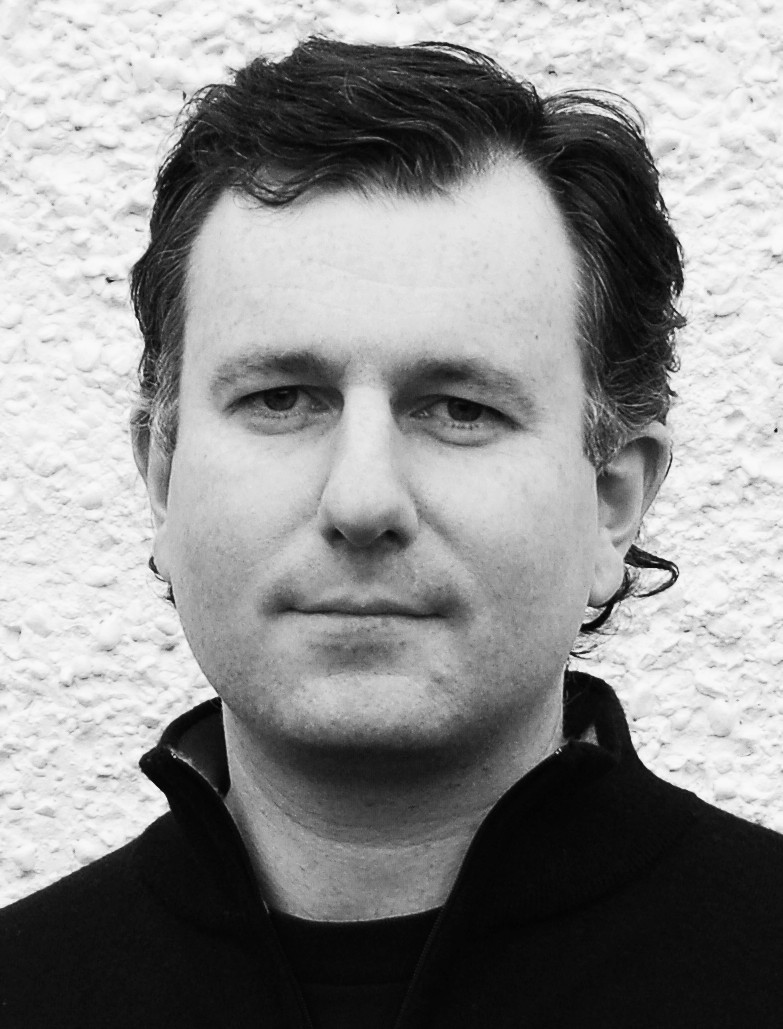Image by David Armano
So you’re having coffee with a friend and she mentions that Stefan, a mutual acquaintance, has just landed a dream commission.
You’re stunned. You didn’t even know the commission was up for grabs. If you’d known, you’d have been on it like a shot.
Naturally, you’re pleased for Stefan. He’ll do a good job and he works hard, so of course he deserves his success. But you wouldn’t be human if you didn’t feel just a little bit envious. You’d love to work on a project like that. And you’d do just as good a job as Stefan, if not better.
And maybe later, you can hear a little voice piping up at the back of your mind:
It’s not fair. Why didn’t I get a chance?
Why indeed?
You’ll never know the details, but you can guess how it happened. Someone rang someone. Emails were exchanged. Conversations were had, over coffee or dinner, or in the back of a members’ bar. Which led to someone whispering in Stefan’s ear. Opportunity knocked.
But why did it knock for Stefan instead of you?
Partly, it was down to luck. Life is unpredictable, especially in the creative industries. But luck aside, there was one big factor that made the difference: Stefan’s network came through for him, and yours didn’t.
So if you want to get luckier, and have opportunity knock for you more often, you’ll need to do what Stefan did, and build a better network. Which means — brace yourself — doing more networking.
The real purpose of networking
Perhaps you don’t recognise the scenario I’ve just described. Or perhaps you find yourself in Stefan’s shoes, with opportunities dropping into your lap left, right and centre. Perhaps you’re in your element at a networking event or industry party, and don’t see what all the fuss is about. If that’s you, then you can make yourself a cup of tea and take this week off — or read the lesson for fun and forward it to someone you know who needs it.
But if you’re one of the many people who winces at the very thought of ‘networking’ and could never imagine yourself ‘working a room’ and handing out business cards to strangers, read on.
A few years ago, I would have run a mile rather than attend a networking event. In my mind, these gatherings were inhabited by men in shiny suits and women with padded shoulders and very little time to waste, pushing their business cards at each other and delivering aggressive ‘elevator pitches’. The idea of becoming one of them filled me with disgust.
You’ll be pleased to know you don’t need to do any of that. I’m sure there are plenty of events like that if you look for them, but my experience has been very different. Networking is now one of the more enjoyable aspects of my business — I even look on it as a treat and a welcome break from my schedule of writing, coaching and training. There are two reasons for this.
Firstly, if you’re working in the creative sector then there are an awful lot of interesting, friendly and stimulating creative people around. People like you. When I lived in London, there were plenty of creative networking events that were very informal and friendly.
The vibe at social media cafe or likemind was more like a party than a business event. Except that it was in the morning and we were drinking coffee instead of alcohol. People sat around in T-shirts and jeans, chatting about things that interested them, learning about the weird and wonderful things that each of us did for a living. Sales pitches were frowned on. There was no pressure to work the room — you could have just as good a time sitting with the same person all morning. If you got on well with someone, they would ask for your business card; you didn’t need to push it forward.
And secondly, a lot of the anxiety around networking comes from a misconception about its purpose. When you go to a networking event, you are not there to sell. You are not there to land a new job or client on the spot. You are not there to convince anyone of how great you are. You are not there to collect business cards, or to get rid of your own. And you are not there to become best friends with everyone you meet.
The purpose of networking is to build your network.
That’s it. Once you have a rich network, as Stefan will tell you, then nice things can happen as a result. Contacts can become acquaintances, acquaintances can become friends, or clients, or employers, even business partners. But that’s down the road, when the relationships develop. Before you get to that stage, you just need to focus on building your network.
And building a network isn’t all that hard. You just need to show up in the relevant places, with an open mind and a healthy curiosity about the people you meet. It helps if you have some business cards. And it’s a big plus if you’re doing something interesting enough that people would want to hear about it — but if you’ve been acting on the previous lessons in this course, then that shouldn’t be a problem for you.
But the most important thing is to show a genuine interest in the people you meet — by introducing yourself, asking questions, and listening attentively. If you’re in the right place, i.e. somewhere full of interesting and open minded creative people, then that should be a piece of cake. (And if you’re in the wrong place, full of the wrong kind of people, then don’t bother going back next time.)
You’re not trying to become close friends with everyone you meet. It’s nice when that happens, but don’t dismiss casual acquaintance as shallow or worthless. Sociologist Mark Granovetter wrote a seminal paper called ‘The Strength of Weak Ties,’ in which he pointed out that when it comes to things like marketing, politics and networking, having a large number of weak ties (i.e. casual acquaintances) was more valuable than a small number of strong ties (i.e. close friends). (Just to be clear: he didn’t say weak ties were more important in general, just in these specific contexts. Hang on to your friends!)
So next time you set out to meet new people in your field, remember that you’re just there to make some new acquaintances, share ideas, and add a few more weak ties to your network. Anything else is a bonus. Paradoxically, if you go in with this relaxed attitude, you’re much more likely to hit it off with people and discover new opportunities…
…And beware of going too far the other way, and failing to answer the door when opportunity knocks. If you meet someone with sufficient influence to help you, and who shows an interest in your work, you need to be prepared to talk enthusiastically about your goals and the kind of opportunities you are looking for. Another good way of signalling your interest in taking things forward is to ask for their advice – this positions them as an authority and influencer, giving them the option of helping you without putting them on the spot with a direct request.
Where does your tribe hang out?
Image by Russell J Smith
Have you ever had the feeling of walking into a room full of strangers and instantly feeling at home? Something about the room, the decoration or music, and the dress and body language of the people around you told you that these people were members of your tribe:
For millions of years, human beings have been part of one tribe or another. The group needs only two things to be a tribe: a shared interest and a way to communicate…
Human beings can’t help it: we need to belong. One of the most powerful of our survival mechanisms is to be part of a tribe, to contribute to (and take from) a group of like-minded people…
When one Deadhead says to another, “2-14-70,” it’s like a secret code. The smiles and the hugs and handshakes define who we are — being in a tribe is a big part of how we see ourselves.
(Tribes
by Seth Godin)
I don’t know about you, but ‘finding your tribe’ sounds a lot more fun to me than ‘networking’. If you look at it this way, then it’s just a case of discovering where your tribe hang out. If you’re not sure, then ask that friend of yours who seems to know everyone in your industry or field. Tell them the kind of people you’re looking to meet, and get them to take you along to an event and introduce you.
If you don’t know anyone like that, then you could do a lot worse than looking your town or city up on the Creative Mornings website — it will give you the time and location of free monthly ‘breakfast lectures for the creative community’. Creative Mornings is the brainchild of designer and entrepreneur Tina Roth Eisenberg – you can learn more about it by listening to this interview Tina gave me for The 21st Century Creative podcast.
For events based around specific interests, search MeetUp.com, which has a mind-boggling array of live events around the world based around every conceivable interest. Also check out newsletters and noticeboards of your industry organisations, for networking events, conferences, shows and exhibitions.
The nice thing about finding your tribe is that once you connect with a few members, they’ll be able to tell you about cool events and regular haunts where you can meet the rest of the tribe.
Happy hunting!
Worksheet
Podcast episodes
The following episodes of The 21st Century Creative Podcast touch on the themes of today’s lesson:
The Power of Community for Creative Professionals with Scott Belsky
Creating a Business You Are Proud of with Patricia van den Akker
The Entrepreneur Ethos with Jarie Bolander
Tina Roth Eisenberg’s Labours of Love
Other resources
Written by me, unless otherwise indicated
Networking skills
5 Reasons You Should Invest Your Time in Networking by Chris Garrett
How to Network for Introverts by Rob May
Creative Mornings – free creative lectures in a city near you.
MeetUp.com – Search for events in your town/city, organised around specific interests.
Tune in next week …
When we’ll look at how you can use the internet to expand your network far beyond your current circle of contacts…
About The 21st Century Creative
Copyright © Mark McGuinness 2010-2019




